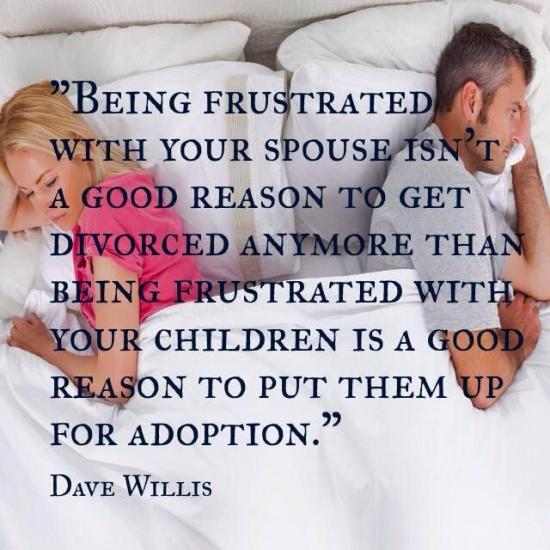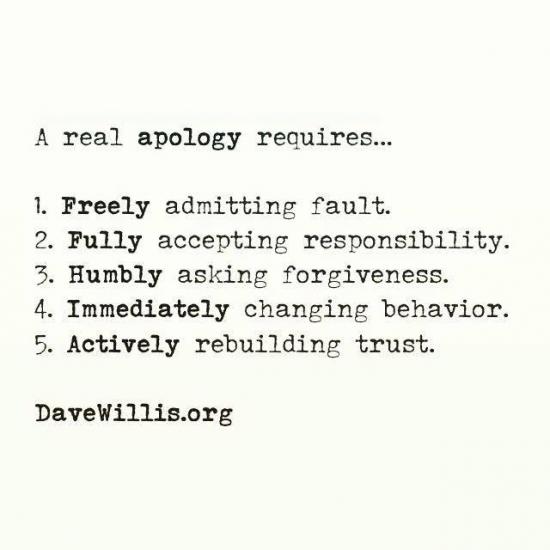I recently talked to an old friend whose marriage is in crisis.He is dealing with infidelity, as his wife has been having an ongoing affair with her personal trainer at the gym. The aftermath of the affair is ripping their family apart. What she naively assumed would just be a “harmless fling” is now having immeasurably devastating consequences for her marriage and their children.
Infidelity destroys marriages. I see it every day. Typically, when we’re talking about “infidelity“, we’re referring only to a sexual affair. While sexual affairs might be the most destructive form of infidelity, there are many other ways people can be unfaithful in marriage. Smaller acts of “infidelity” often lead to a sexual affair.
We need to safeguard our marriages from infidelity in ALL its forms.
The literal definition of infidelity is simply broken trust or broken loyalty. If you want to protect your marriage from all forms of infidelity, please avoid the following behaviors. Preventing all nine of these acts of broken loyalty and trust are vital ways to safeguard your marriage. If your marriage is currently struggling, please check out our new program designed specifically for couples in crisis at FightingForMyMarriage.com.
9 most common forms of infidelity are (in no particular order):
1. Giving your primary loyalty to someone or something other than your spouse.
If you are giving your primary loyalty to your parents ahead of your spouse, you’re actually committing an act of infidelity. If you’re more concerned with your friends than with your spouse, you’re essentially cheating. If you’re consistently giving your strongest loyalty to your career ahead of your spouse, you’re being unfaithful. If we could grasp this responsibility to give our first and best loyalty to our marriage, our marriages would instantly and dramatically improve.

2. Keeping secrets from your spouse.
In marriage, secrets are as dangerous as lies. Marriage MUST be built on a foundation of total transparency and trust. You must prioritize trust and transparency in the marriage ahead of your own personal privacy. Unless you’re planning a surprise party or hiding a holiday gift, there are no places for secrets in marriage. Anytime you’re having a conversation, making a purchase, sending a text message, doing an internet search or doing anything else you hope your spouse never finds out about, your secrecy is actually an act of infidelity.

3. Threatening divorce.
Divorce has become far too casual in our society. We assume that the moment the marriage becomes difficult, it must mean that we married the “wrong” person and need to start over again with someone new. When we threaten divorce, we’re breaking the sacred trust that makes a marriage work. We’re saying our vows don’t matter and our commitment is conditional on our feelings. View struggles in your marriage as an opportunity to work together to become stronger; not as an excuse to quit.

4. Emotional Affairs.
Emotional affairs often lead to sexual affairs, but they’re also an act of infidelity in themselves. They take place when we start secretly seeking the affection and attention of someone other than our spouse. They often begin innocently with a natural connection you share with someone at work (or wherever), but lines can be quickly crossed. If you think an inappropriate relationship might be forming, please read these 7 signs you’re having an emotional affair.

5. Refusing to admit fault or sincerely apologize.
When you refuse to admit fault, make excuses for your actions, blame your spouse instead of taking responsibility or fail to sincerely apologize, you’re committing an act of infidelity. Some of the most powerful and healing words in a marriage are, “I was wrong. I’m truly sorry. Please forgive me and give me the opportunity to rebuild the trust I’ve broken.”

6. Not showing up when your spouse needs you.
Your spouse should never have to face any struggle without your presence, your partnership, and your support. When you said “I do” you were making a vow to be there for each other. To withhold your help or selectively choose your involvement based on your convenience is to communicate disloyalty to your spouse and to commit [an] act of infidelity. We show our love by showing up.

7. Trying to “win” an argument with your spouse.
This one might have caught you off guard. We all want to “win” an argument, right? What could be wrong with that? Well, in marriage, you can’t approach disagreements as something one person wins and the other loses. To try to win at your spouse’s expense is actually a form of broken trust and loyalty because you’re on the same team. You will either win together or lose together. To take a win-lose mindset in marriage is to say you’re on different teams. You’re adversaries instead of partners. That’s a divorce mindset; not a marriage mindset.

8. Sexual Affairs.
Sexual affairs wreck marriages. This is probably what jumps to your mind when you hear the word “infidelity” because it’s the ultimate act of broken trust and loyalty. If you are starting down this road and beginning the toxic process of mentally justifying an affair, please stop! The pain it will cause is beyond what you can currently imagine. If you are now fighting to rebuild your marriage after the devastation of a sexual affair, please check out our new program for couples in crisis at FightingForMyMarriage.com.

9. Giving up on each other.
Whatever you’re facing, you can get through it together. Don’t lose hope. Don’t give up on each other. For real solutions and support to help you start rebuilding what’s been broken, please check out our new program for struggling couples at FightingForMyMarriage.com.


